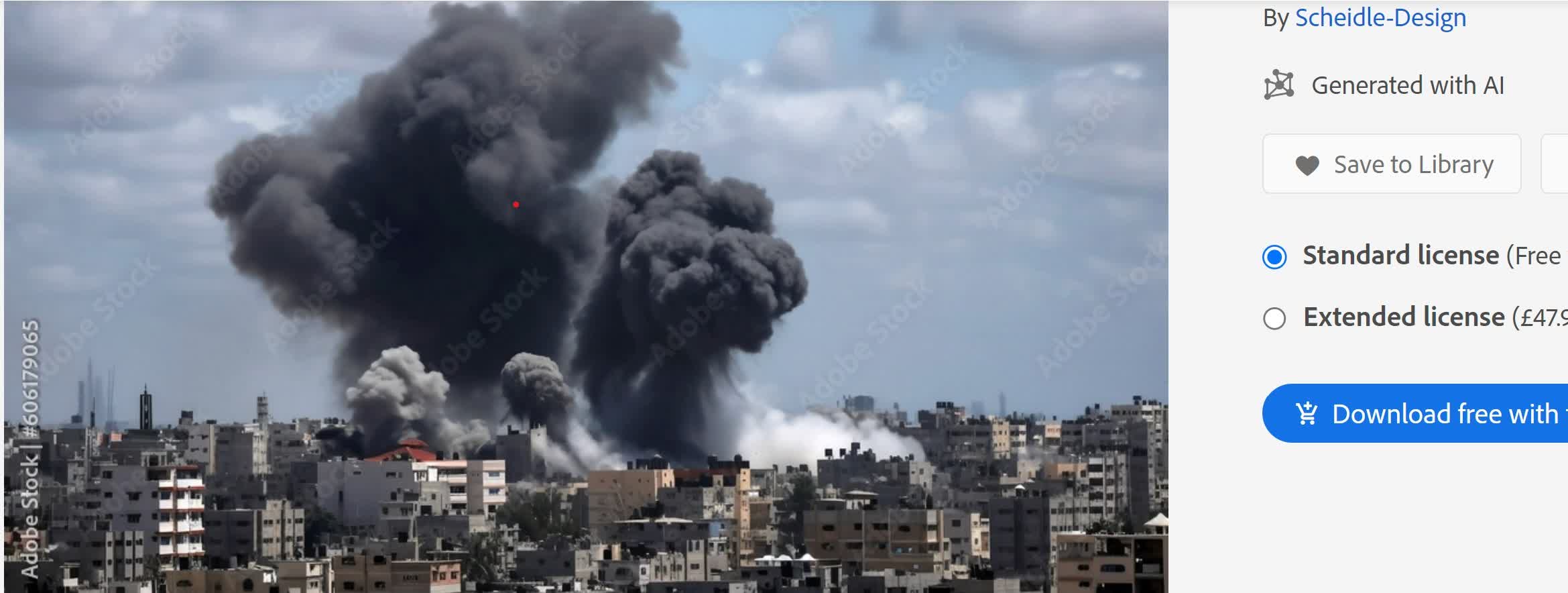A hot potato: One of the dark sides of AI image generators is their ability to create fake images from global conflicts. It's not too surprising to learn that this is happening with the Israel-Hamas war, but what has come as a shock is that these photos are being sold via Adobe's stock image library and bought by news publishers who are passing them off as real.
Adobe announced last year that it would sell AI-generated images on its stock image platform. It pays those submitting the images a 33% revenue cut, meaning they could earn between 33 cents and $26.40 from every download.
Searching for "Israel-Palestine conflict" on the stock Adobe site brings up almost 1,000 results. Based on the first few pages, the overwhelming majority of these are AI-generated – some a lot more obviously than others.
Last week, Australian news outlet Crikey reported that one of these AI-generated images, labelled "conflict between Israel and palestine generative ai" shows plumes of black smoke rising from among buildings. It's photorealistic, resembling many of the real photographs taken during the conflict.
The image has been circulated online by small news outlets, blogs, and newsletters, which have not marked it as being created by a generative AI. It's unclear whether these publications were aware this was a fake image.
All of the manufactured images in Adobe's library are marked as "Generated with AI," though this only appears when someone clicks on one of the images to download it/show more information.
Adobe stock responded to the reports with the following statement to VentureBeat: "Adobe Stock is a marketplace that requires all generative AI content to be labeled as such when submitted for licensing. These specific images were labeled as generative AI when they were both submitted and made available for license in line with these requirements. We believe it's important for customers to know what Adobe Stock images were created using generative AI tools."
Adobe no longer offers editorial assets as part of its library, unlike Getty Images, which is more popular among larger news outlets. Instead, it promotes "illustrative editorial," which is designed as conceptual imagery designed to illustrate articles on current events and newsworthy topics.
This isn't the first time AI-generated images have been used to illustrate real events. Back in May, Amnesty International was slammed for using fake pictures of Colombian protests.
AI-generated content has become a new weapon in the age of online disinformation, especially as it can appear so real. There have already been warnings of bad actors using the technology to spread divisive images ahead of next year's US elections, and the EU told social media companies in June that AI-created content should be labeled to stop the spread of fake news.
A United Nations survey this week found that 85% of people in 16 countries, including the US, are worried about the impact of online disinformation, while 87% believe it has already harmed their country's politics.

